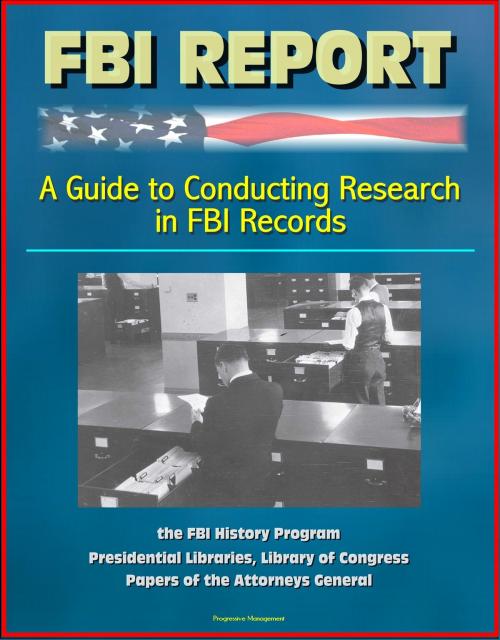FBI Report: A Guide to Conducting Research in FBI Records, the FBI History Program - Presidential Libraries, Library of Congress, Papers of the Attorneys General
Nonfiction, Social & Cultural Studies, Political Science, Politics, Law Enforcement| Author: | Progressive Management | ISBN: | 9781301757107 |
| Publisher: | Progressive Management | Publication: | April 28, 2013 |
| Imprint: | Smashwords Edition | Language: | English |
| Author: | Progressive Management |
| ISBN: | 9781301757107 |
| Publisher: | Progressive Management |
| Publication: | April 28, 2013 |
| Imprint: | Smashwords Edition |
| Language: | English |
A Guide to Conducting Research in FBI Records explains how to find and use FBI records for research purposes. It is designed for scholars, genealogists, journalists, and others who wish to study the FBI and its work.
This publication replaces the first guide created in the mid-1980s and revised in the early 1990s. Our hope is that this updated edition will help the public make better use of the wealth of FBI records made available in recent years and better understand the evolving history of the FBI, which marked its 100th anniversary in July 2008. The FBI has long been of interest to researchers, given the importance and scope of its mission and the range of historical events that it has been involved in over the years. Access to our records has increased significantly over the last four decades, especially with the 1976 amendments to the Freedom of Information Act (FOIA). Records concerning the FBI also have been made available under several other laws and through other venues. This guide begins by explaining what an FBI record is, what researchers can learn from these records, and how they can be used. It also gives a brief history of our records and their role and development in our work. The guide then details how researchers may gain access to the Bureau's records—both those held by the Bureau and those residing in other institutions. A brief discussion of the FBI's Record/Information Dissemination Section follows, describing how the FBI handles Freedom of Information Act and Privacy Act (FOI/PA) requests and why certain information is withheld from public release. Also included is a brief description of major collections of FBI records held at institutions like the National Archives and Records Administration (NARA), the Library of Congress, and other institutions. Significant online collections are also noted. The mission of the FBI is to protect and defend the United States against terrorist and foreign intelligence threats, to uphold and enforce the criminal laws of the United States, and to provide leadership and criminal justice services to federal, state, municipal, and international agencies and partners.
A Guide to Conducting Research in FBI Records explains how to find and use FBI records for research purposes. It is designed for scholars, genealogists, journalists, and others who wish to study the FBI and its work.
This publication replaces the first guide created in the mid-1980s and revised in the early 1990s. Our hope is that this updated edition will help the public make better use of the wealth of FBI records made available in recent years and better understand the evolving history of the FBI, which marked its 100th anniversary in July 2008. The FBI has long been of interest to researchers, given the importance and scope of its mission and the range of historical events that it has been involved in over the years. Access to our records has increased significantly over the last four decades, especially with the 1976 amendments to the Freedom of Information Act (FOIA). Records concerning the FBI also have been made available under several other laws and through other venues. This guide begins by explaining what an FBI record is, what researchers can learn from these records, and how they can be used. It also gives a brief history of our records and their role and development in our work. The guide then details how researchers may gain access to the Bureau's records—both those held by the Bureau and those residing in other institutions. A brief discussion of the FBI's Record/Information Dissemination Section follows, describing how the FBI handles Freedom of Information Act and Privacy Act (FOI/PA) requests and why certain information is withheld from public release. Also included is a brief description of major collections of FBI records held at institutions like the National Archives and Records Administration (NARA), the Library of Congress, and other institutions. Significant online collections are also noted. The mission of the FBI is to protect and defend the United States against terrorist and foreign intelligence threats, to uphold and enforce the criminal laws of the United States, and to provide leadership and criminal justice services to federal, state, municipal, and international agencies and partners.















